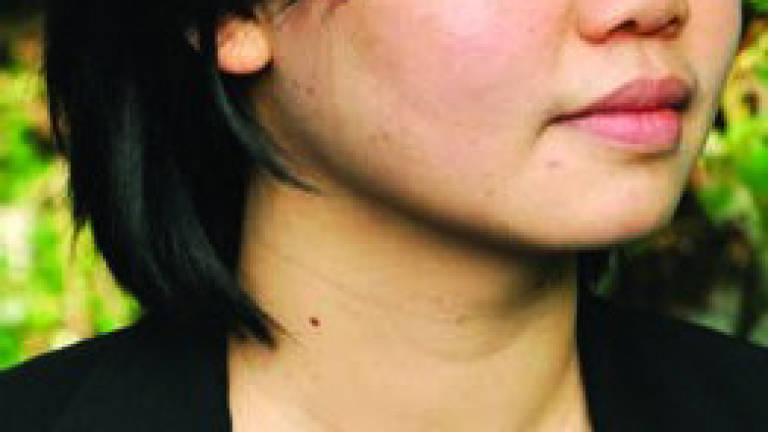The art of being Zen

ZEN Cho is not your average lawyer. The 29-year-old Malaysian, who lives in the UK, also happens to be the best-selling author of Spirits Abroad and the editor of Cyberpunk: Malaysia, both anthologies of short stories from local publisher Fixi Novo. And September will see the release of the much anticipated Sorcerer to the Crown, the first book of her fantasy trilogy set in Victorian London, under Ace Books in the US and Pan Macmillan in the UK.
Did you always want to be a writer?
Yes. I think my family was a bit puzzled by it when I was young and doing all these weird things such as spending hours reading in the bathroom, and covering the computer screen whenever they passed by – I didn't like anyone seeing my works in progress, then or now. But they've been delighted about Spirits Abroad, Cyberpunk: Malaysia and Sorcerer to the Crown. I am very lucky. They're hugely supportive about writing and everything else, practically and emotionally.
How did you find and hone that distinct writing voice and style?
I did it by reading and writing a lot. One thing I did as a teenager was write pastiches: I'd write short stories in the style of, say, Rudyard Kipling or P. G. Wodehouse, just for the fun of it, and to see if I could.
The greatest single change since those days is that, while I still love pastiche, I've developed the courage to abandon it and write in my own voice for the stories that need it. But obviously that's a voice that contains echoes of all the things I've read and that have influenced me.
What inspires you when it comes to your writing?
I write primarily in two modes. One is fantasy in a Malaysian setting, or with Malaysian characters. The other is what I jokingly call fluff for post-colonial book nerds.
For the first type of story I'm generally inspired by things that happen in my life – it saves on research, because you just take an incident that actually happened and add some magic. The second mode is my outlet for my pastiche habit. I draw inspiration from the books I loved as a kid and teenager, but add dragons or spaceships.
As a Malaysian Chinese living in the UK, how has this juxtaposition of cultures affected you as a writer?
Living in between cultures – being this dislocated person – has shaped my work in all sorts of ways. With my view of fantasy in particular, I call my stories that feature Malaysian hantu and Chinese vampires "fantasy" because that's the market niche they seem to fit, but actually it is so natural to write of hantu as real because that's how you talk about them at home. I don't believe in hantu myself, but I'm a bit worried they might not care whether I believe in them or not. Maybe my stories aren't fantasy, but a version of realism incorporating a level of reality that isn't generally accepted by modern, Westernised people.
The local English literary scene has evolved a lot in recent years. What are some of the improvements you've seen, and what do you think we can do better?
Improvements are in bulk and visibility. There seem to be more writers than ever before,and we can connect with each other now thanks to the Internet. I think we're doing a lot of the right things in building community, supporting one another, continuing to write and improve our craft. One thing I would like to see is people reducing the extent to which they look West, and figuring out different forms of validation and ways to get their stories out there, other than the standard US/UK publishing deal.
Would you ever give up being a lawyer to concentrate solely on writing?
Maybe. I can see circumstances in which it would not be possible to maintain the two careers anymore, and I'd have to choose one, though honestly writing might not even be the choice. (I'll always write, but publishing is an uncertain industry.) It would be a shame to give up law altogether, though. I take a lot of pride in my job and I think being a lawyer has actually made me a better author, and vice versa.